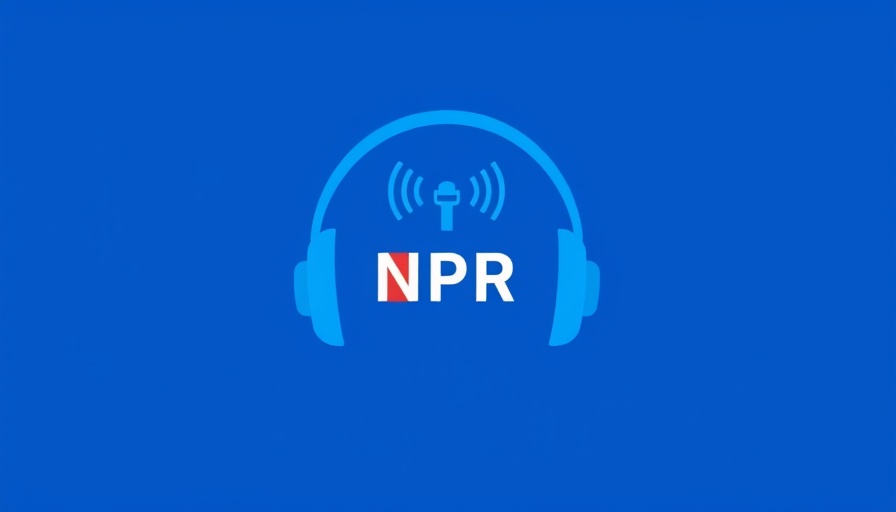
Climate Change: A Rising Challenge for Allergy Sufferers
As temperatures across the globe have been steadily rising, the implications on seasonal allergies have become increasingly evident. Recent studies highlight a trend that is alarming for millions of allergy sufferers: climate change is causing longer and more intense pollen seasons, leading to exacerbated hay fever symptoms. For those who experience these allergies, this means a grimmer reality each spring and fall, with symptoms starting earlier and lasting longer than ever before.
Understanding the Link Between Weather Patterns and Allergies
Researchers, including medical students like Alisha Pershad from George Washington University, have meticulously reviewed various studies to draw connections between climate change and seasonal allergies. Observations in clinical settings reveal a noticeable uptick in patient complaints regarding allergy severity. Symptoms like sneezing, itching, and sinus congestion can significantly impair quality of life, compelling individuals to miss work or school, an undesirable outcome for both employees and employers alike.
Shifting Pollen Seasons: The Data Speaks
According to scientific evidence, including a comprehensive review published in The Laryngoscope, pollen seasons in North America have already lengthened. Data shows that the pollen season now extends up to 20 days longer compared to the 1990s. Looking ahead, alarming projections suggest that by the end of the century, pollen season could start as much as 40 days earlier and extend nearly 19 days longer into the fall. Such a shift could dramatically increase exposure to pollen and, consequently, allergy-related health issues.
More Pollen: More Problems
The implications of this continuing trend aren't just a matter of inconvenience; they present a significant public health concern. The increased prevalence of ragweed and other allergenic plants offers a concerning forecast for allergy sufferers. Not only is the quantity of pollen increasing, but studies show that it is likely becoming more potent, intensifying the allergic reactions in sensitive individuals. For the 50 million Americans currently dealing with allergies, this translates into increased doctor's visits and soaring medical costs, estimated at $3.4 billion annually in the U.S. alone.
Impacts on Business and Workforce
The repercussions of the rising pollen counts and longer seasons go beyond personal health—they can extend to the workplace, affecting productivity and performance. Employees suffering from severe allergies may find it challenging to concentrate and perform their best. Companies could see higher absenteeism rates and increased health-related expenses, impacting their bottom line. Business leaders should consider integrating flexible working options during peak allergy seasons or investing in wellness programs to support their employees.
Proactive Strategies for Allergy Management
As we witness these changes unfold, it's pertinent to explore actionable insights for managing allergy symptoms effectively. Here are some strategies that individuals can employ:
- Stay Informed: Keep track of pollen forecasts in your area through local weather reports or online platforms.
- Limit Outdoor Activities: On peak pollen days, try to stay indoors, especially on windy days when pollen is most likely to be dispersed.
- Invest in Quality Air Filters: Using high-efficiency particulate air (HEPA) filters at home can significantly improve indoor air quality.
- Consult a Healthcare Professional: Find tailored treatment plans or preventive measures that may include medications or immunotherapy.
- Enhance Workplace Policies: Encourage businesses to implement more flexible work arrangements during high pollen seasons to accommodate employees' health.
The Future: What Lies Ahead?
What does this mean for the future? It is essential to recognize that as climate change continues to evolve, its impacts on health will also transform. Collectively, as a society, we need to advocate for sustainable practices and support environmental initiatives that could mitigate the effects of climate change. It will take a concerted effort from individuals, businesses, and policymakers to address the climate crisis and its broad range of consequences, including those affecting seasonal allergies.
In conclusion, understanding the correlation between climate change and the intensification of hay fever is more than a scientific study; it's an urgent call to action for healthcare providers, businesses, and individuals alike. As symptoms worsen and more individuals suffer from allergies, proactive measures can help alleviate the strain on public health and improve overall quality of life.
 Add Row
Add Row  Add
Add 




Write A Comment